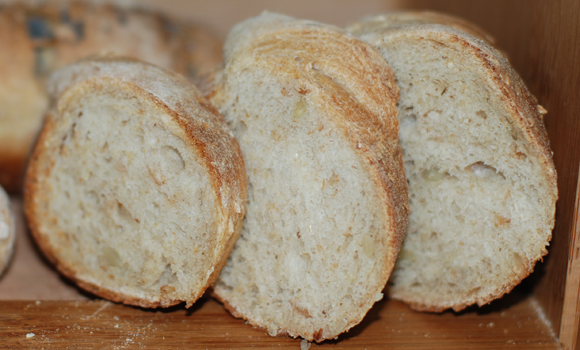Hello folks!
Yes, another week went by! Last month I wrote a very interesting entry on the contrast of idioms between Spanish and English. As I found the contrast fascinating, I'll continue to write another entry on this subject to somehow highlight the differences between both languages and to show that translation is not the most effective method when learning English (or any other language).
1) SPANISH ENGLISH

Zamora no se ganó en una Rome wasn't built in a day.
hora (Zamora wasn't won
in an hour)
These idioms are used to indicate that we must be patient and things take time to happen. We can't do things in a rush. In Spanish, the use the example of Zamora, which bravely withstood the siege against it. In English, the prefer the city of Rome and its reshaping.
2) SPANISH ENGLISH

Tirar piedras contra tu To shoot yourself in the
propio tejado (throw stones foot.
at your own roof).
These expressions are used when you inadvertently do something that causes harm to you. In Spanish, you are throwing stones at your own roof, whereas in English you shoot yourself in the foot. Even though expressions are different, I'm pretty sure the metaphor is quite clear, isn't it?
3) SPANISH ENGLISH


De tal palo tal astilla The apple never falls far from
(from a given stick comes an the tree / like father like son.
analogue wood chip)
These expressions are used to indicate family action resemblance, that is, the actions of a given parent are repeated by their offspring. To picture this, in Spanish they use the imagery of a stick and a small wood chip, while in English they say that the apple (the son or daughter), never falls far from the tree (the parent). They also use a straightforward simile : like father like son.
4) SPANISH ENGLISH
The die is cast.
La suerte está echada.
(Luck is cast)
Has it ever happened to you that you are nervous for a decision that is about to be taken by someone and that can affect your life? If so, these are the expressions for you. In Spanish, the protagonist of this idiom is 'luck', while in English is a die that has just been cast. In case you don't know, 'die' as a noun is the singular of the word 'dice', something you normally need to play a board game. If you don't remember them, you can resort to your Latin and use the Latin expression instead : 'alea jactea est.'
5) SPANISH ENGLISH


Ser un grano en el culo To be a pain in the neck/ass
(to be a spot in the ass)
I presume there is someone in your life who gets on your nerves or who you find terribly annoying. In Spanish, this upsetting person is compared to a spot in your bottom, while in English is compared to pain in the neck (if you are polite) or in the ass (if politeness is not for you).
6) SPANISH ENGLISH

Traer pan a casa Bring home the bacon
(Bring the bread home)
These expressions refer to the fact of supporting the family, bringing home money and food. In Spanish, this is associated to an important element in the Spanish cuisine, no other than bread. Can you imagine your lives without it? However, in English, this striking element is bacon, he he. What a difference!
7) SPANISH ENGLISH


Ponerse rojo como un Be as red as beetroot
tomate (turn red as a tomato)
When you were teenagers, I'm pretty sure that you got embarrassed by your parents, or maybe by your first love. When you are that embarrassed you face gets red. In English, you get red as a tomato, but in English as a beetroot.
8) SPANISH ENGLISH
Fresco como una lechuga As cool as a cucumber
(Cool as a lettuce)
When someone's character is relaxed and unworried, we say they are cool. However, vegetables change according to language. In Spanish, we associate it to the lettuce, while in English to a cucumber. Which one do you think is best?
9) SPANISH ENGLISH

Está chupado (it's licked) It's a piece of cake
(easy peasy lemon squeezy)
When we refer to something super-easy, Spaniards, strange though it may seem, refer to it as something that has been licked before. Yuck! However, in English, they use a dessert to refer to it, in particular, a piece of cake.
10) SPANISH ENGLISH
Ni por todo el oro del mundo Not for love not for money
(not even for all the gold in the
world)
When something is impossible to get, we like to exaggerate. In Spanish, we say that you won't be able to get that not even for all the gold existing in the world. However, in English love is added to the equation, and they simply say it not for love not for money.
Well, as you can see Spanish and English are two very different languages. If you are able to use some of these idioms accordingly in real communication, that'll mean you 're getting close to being a native speaker! If you're fond of idioms and would like to learn some more, click on idioms with number 2; colour idioms I; colour idioms II; idioms related to joy; animal idioms I; animal idioms II, idioms of parts of the body I ; body idioms II; idioms related to violence; idioms related to food; idioms related to revenge; idioms related to money; idioms English vs. Spanish I; idioms English vs. Spanish II.
See you next week. Until them you can share in comments some other idioms that are striking for you.

No comments:
Post a Comment